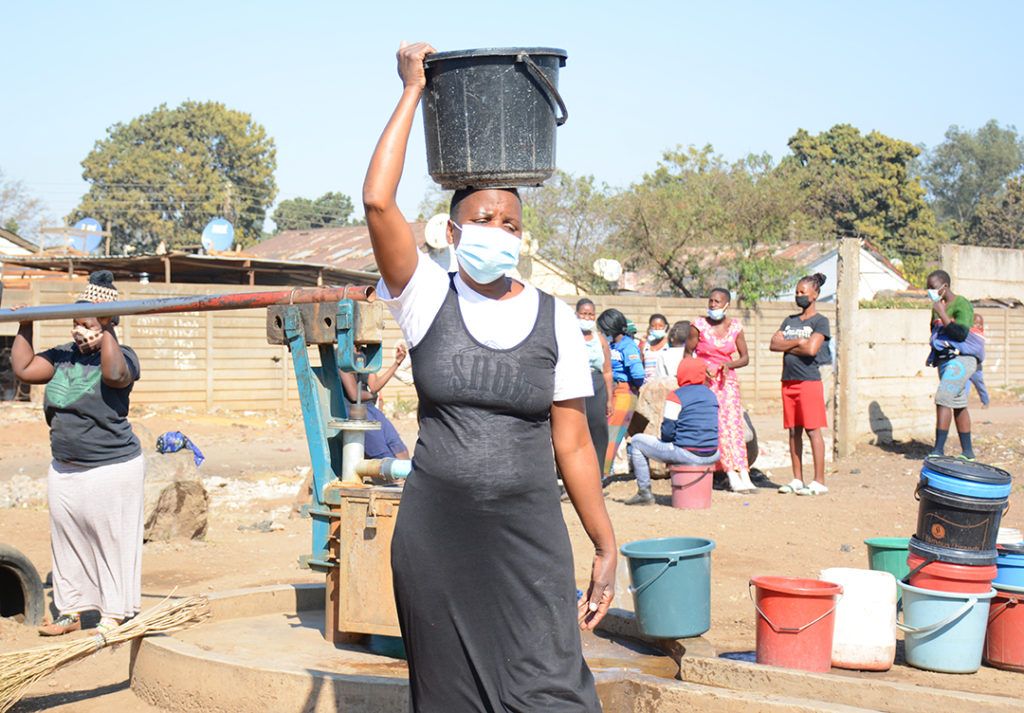 Stories
Stories
July 23, 2021 • 2 min read
Life for Mercy Shumba and her family has been transformed since GOAL built a new water borehole in their community.
“It was like a dream for us,” says Mercy, who lives in Highfields, a suburb of Harare the capital of Zimbabwe. “People in my community never thought they would have sufficient access to safe water.”
Waiting hours for clean water
Mercy and others in her community used to spend hours every day walking and queuing to fetch clean safe water. But to avoid a long walk many resorted to drawing water from local swamps. The dirty water carried diseases, including typhoid, and many children suffered from diarrhoea.
Rather than risk taking dirty water from the swamp Mercy opted to walk an hour to a get clean water. Typically she spent an hour and a half waiting in a queue at the tap stand.
A dream come true
“When GOAL Zimbabwe told us about a new Water, Sanitation and Hygiene (WASH) project we didn’t believe it – until we saw work actually start on the borehole rehabilitation.” she says.
With new water boreholes, community members are no longer suffering from typhoid and diarrhoea. And children are able to spend more time on their school studies instead of fetching water.
GOAL is currently implementing Covid-19 WASH activities in suburbs of Harare. These activities include encouraging social behaviour in communities, and supporting the Rapid Response Team for Covid-19 in the Mbare, Kuwadzana, Highfields and Waterfalls Districts of Harare.

Mercy carries clean, fresh water from GOAL’s new borehole in Harare
Ongoing challenges
Access to safe water remains a challenge in Harare’s suburbs. Highly populated areas in particular are suffering from excess demand and old water and sewage infrastructure.
The situation is further compounded by the economic situation. Urban local authorities still have limited access to foreign currency to procure water treatment chemicals and maintain the existing water systems.
Transforming lives
GOAL’s WASH project in Harare involves rehabilitation of boreholes and the construction of piped water schemes. The project will reduce the need for community member to walk long distances to safe water sources. As a result less people will end up catching water borne diseases.
By increasing access to waterpoints, the burden on women and children in particular to source and carrying water safe water has reduced. This in turn has reduced exposure to sexual exploitation and abuse of young women and girls queuing for hours at night to collect water. For Mercy and thousands of women like her the project has been lifechanging.
You can support GOAL’s work in Zimbabwe with a donation today.
